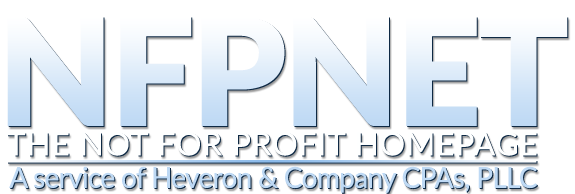Charter School Audits-What to Expect From a New York State Comptroller Audit
Charter schools are always subject to scrutiny because they draw money from public schools in the district.
Their charters are re-assessed every five years, and they are subject to annual financial statement audits, and compliance audits if they use more than $750,000 in federal funds, as well as agreed-upon procedures audits under some circumstances, including an initial assessment of internal controls, within 120 days of when their charters are issued.
In addition, outside New York City, the New York State Comptroller randomly audits charter schools. Those audits are based on the New York State Department of Education “Charter School Audit Guide”. Heveron & Company partner Jeanne Beutner, CPA provided some input into the development of that audit guide, so consider contacting Jeanne if you have questions about the audit guide.
Knowing the issues that came up in these audits can help you assess your operations and avoid similar deficiencies.
According to a CPA Journal article authored by Marie Blouin, PhD, CPA and Ronald Huefner, PhD, CPA, 54 charter schools have been audited over the past six years. The article confirms that procurement, payroll and other payments, as well as information technology procedures were common concerns, but contracts with sponsoring organizations, conflicts of interest, space issues and residency and billing issues were most common.
Concerns with respect to sponsoring organizations included:
-
- lack of evidence of board review and approval of contracts,
- lack of evidence of review of payments to sponsoring organizations,
- inadequate detail about services that were actually being performed, which led to a question about whether the school may be making duplicate payments for the same service,
- lack of documentation that services were actually received,
- payments based on revenue when that wasn’t a reasonable basis for services performed, and
- lack of evidence that the that the board perform sufficient oversight for budgeting and finance.
Specific conflicts of interest noted in these audits included:
- in two cases there were loans from board members to the school. Such loans are prohibited,
- a board member was a partner in a law firm that provided services to the school, and
- a board member was an investor in a company that leased a building to the school. 10 of the 54 audits contained recommendations regarding residency and billing. This is always a challenging issue especially when students move during the school year.
- In one audit a student moved three times during the year and the school had no proof of residency. As a result one district refused to pay a bill,
- in another case, a charter school with students from five districts was initially denied $300,000 of funding related to 120 students. Most of this ultimately got resolved but not without significant additional effort. The message here is that you need to have a strong ongoing process to determine what school district students belong to and to stay up-to-date with relocations.
